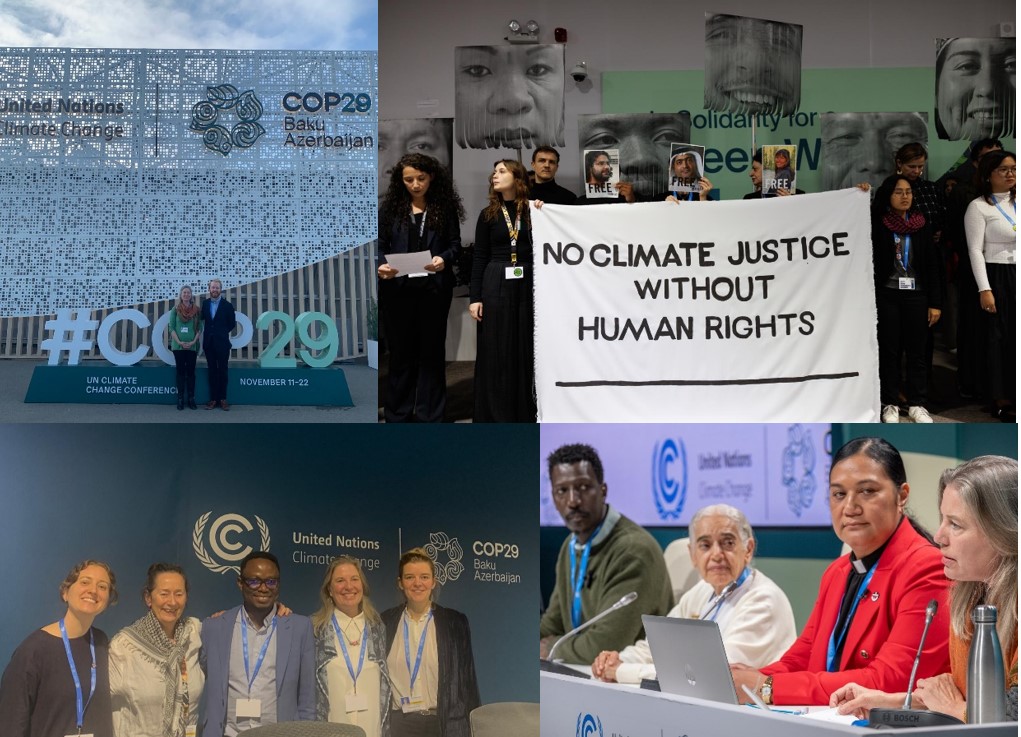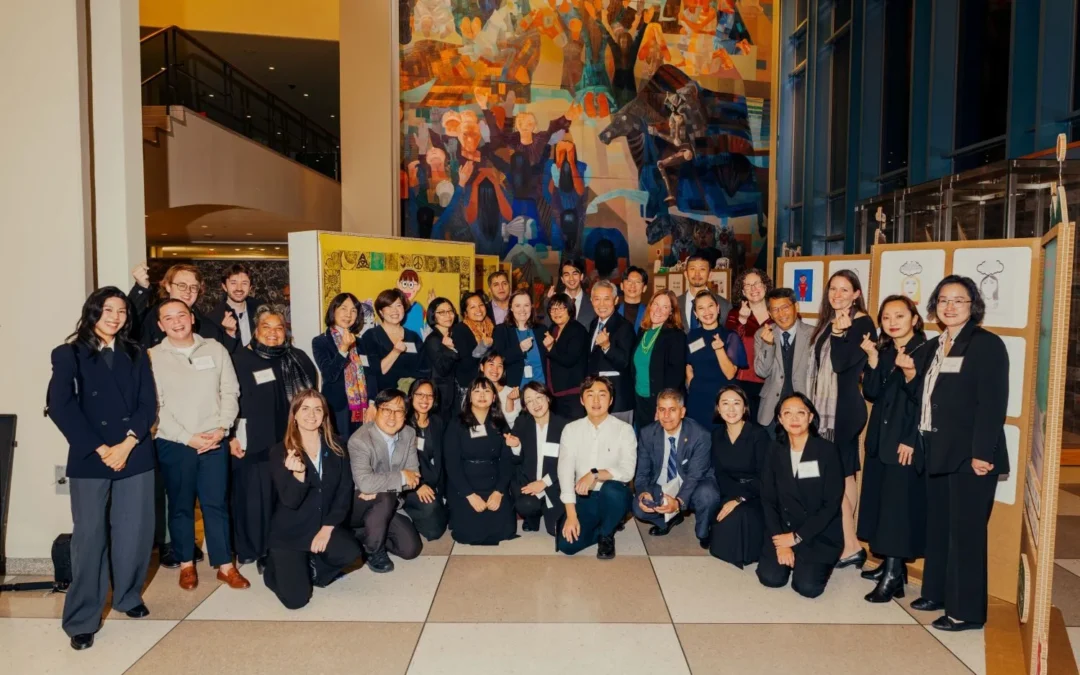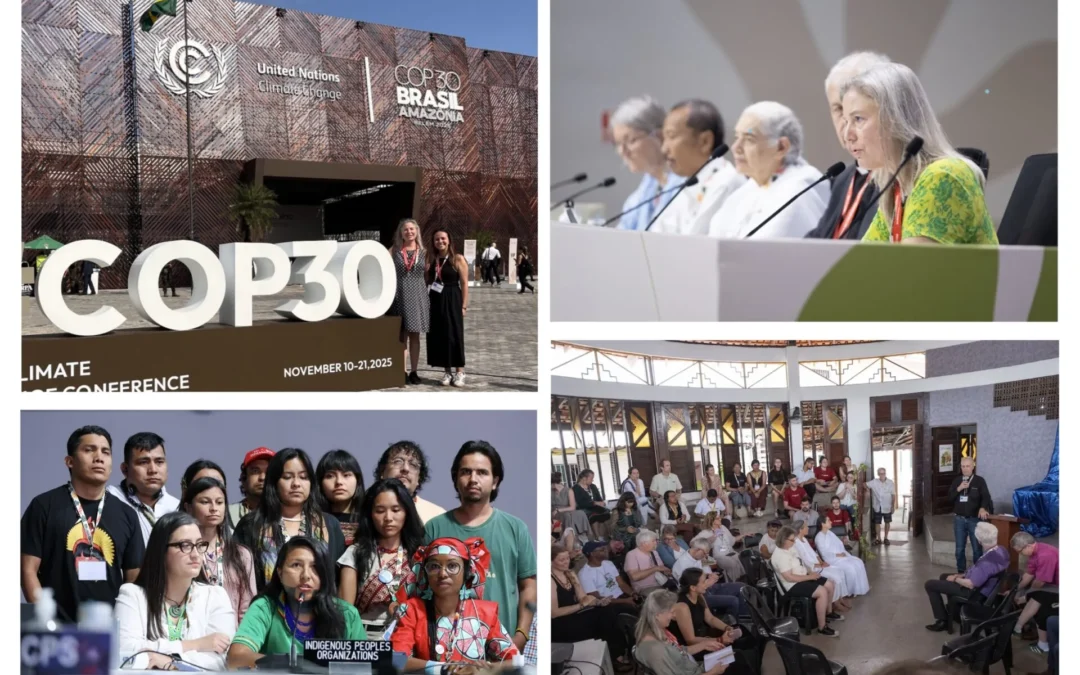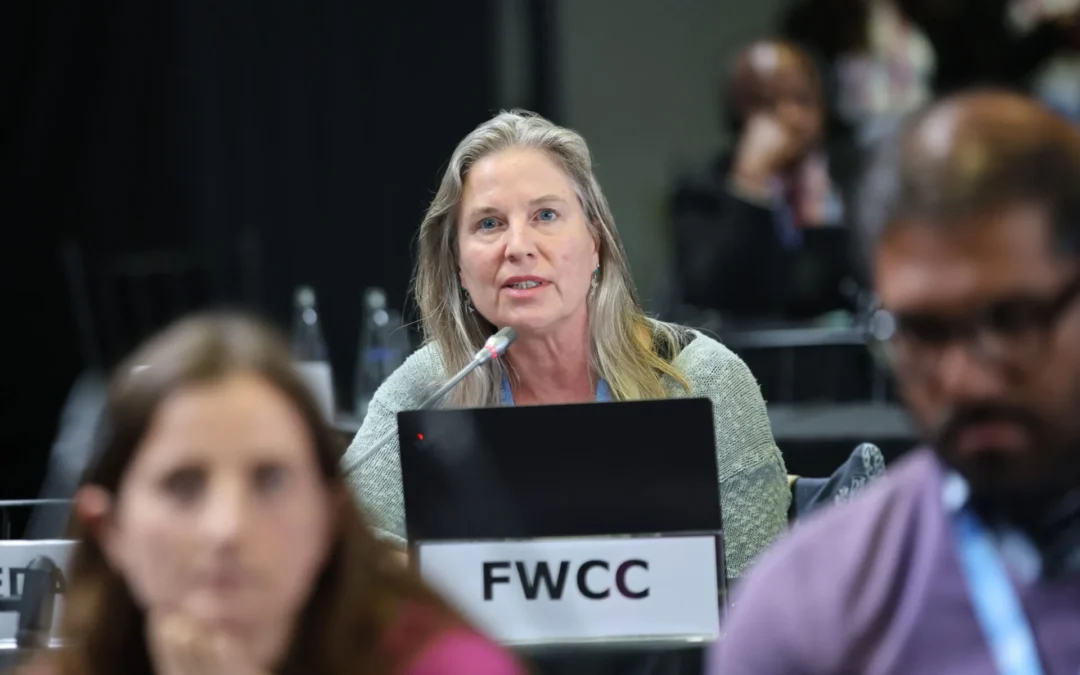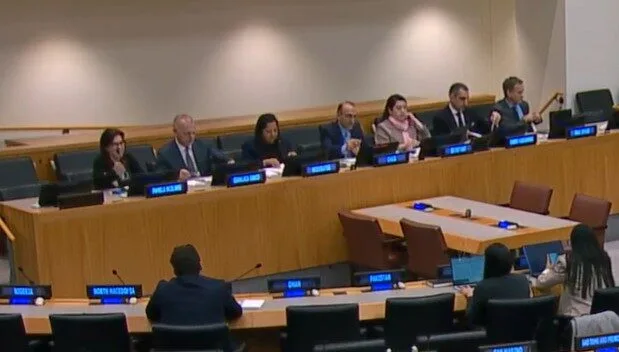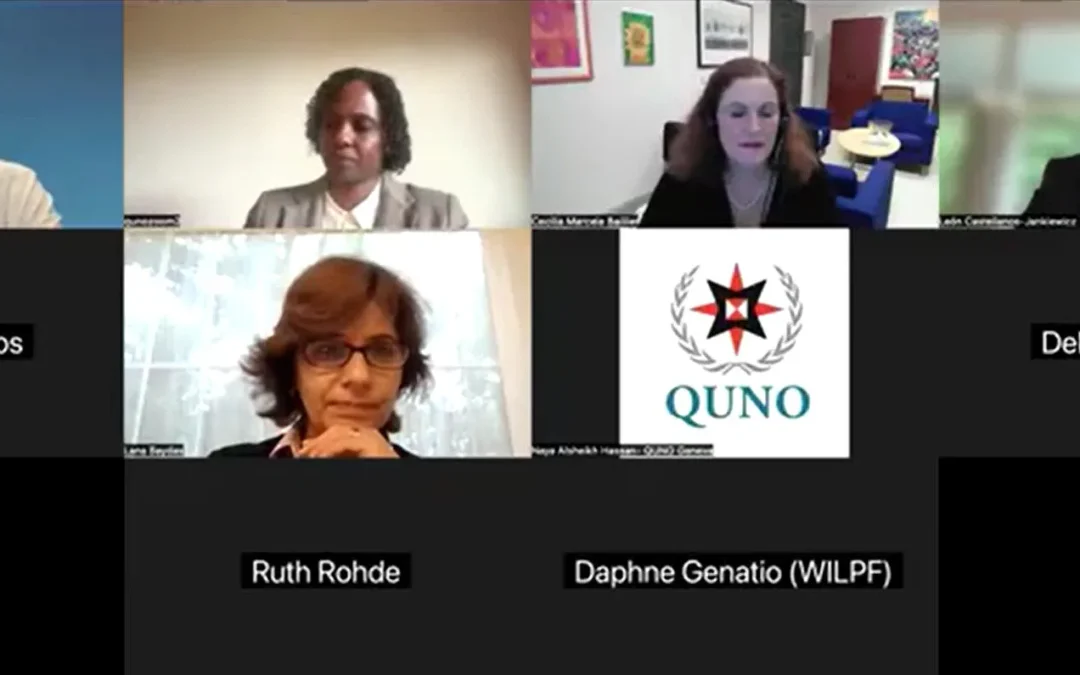Attending COP29 in Baku, Azerbaijan from 11-22 November 2024, QUNO’s Human Impacts of Climate Change (HICC) program was busy engaging with proceedings and acting in our capacity as official credentialed observers of the multilateral negotiations:
– We prepared and translated toolkits for negotiators on the latest climate science, and booklets for grassroots action with guidance on what individuals can do to address climate change.
– We distributed a recently published briefing paper on the risks of geo-engineering reliance on carbon dioxide removal (CDR).
– As part of the COP Interfaith Liaison Committee, we helped author an inter-faith statement calling for ambitious climate action. We also helped plan and facilitate an inter-faith Talanoa Dialogue with faith voices from around the world.
– We coordinated Quaker voices to support global civil society demands for the COP Presidency to protect human rights as a key component of climate action.
– Collaborating with Britain Yearly Meeting, Quaker Earthcare Witness, and other interfaith organizations, we hosted an official COP event titled, ‘What Really Makes us Safe?’ Featuring experts from across the globe discussing effective, just, and equitable climate actions and solutions.
– At an official COP Press Conference we discussed similar questions before journalists: why do we struggle to find much needed funds for climate finance while trillions are spent annually on military spending?
– Throughout the conference, we met with a diverse group of negotiators to talk through hopes and concerns, as part of our ‘quiet diplomacy’ efforts to build communication between countries.
At its core COP29 was about increasing financial commitments from developed to developing countries at a time when the wealthiest and highest greenhouse gas (GHG) emitting developed country was likely to leave the process.
Leading up to the COP29, negotiators had three years to prepare a new collective quantified goal for climate finance (NCQG), set to replace and update the "100 US$ Billion a year 2020" promise critical to establishing the 2015 Paris Agreement. Over the years, civil society groups – including QUNO – have proposed approaches that would make polluters pay, including fair sources of finance for loss and damage. The Paris Agreement committed developed countries to lead on financing and mitigation; they have the highest per capita GHG emissions, the highest historical emissions, and in most cases benefited financially from colonization.
However at the COP29 we witnessed stand-offs, last minute drafts, selective sharing, walkouts, and final language mirroring the last ineffective finance deal. Specifically, the final agreement includes the word ‘by’ in the clause ‘with developed countries taking the lead, of at least USD 300 billion per year by 2035’. The ‘by’ allows 11 years for full delivery. The text also contains no clear commitment to protect sufficient grants rather than loans that exacerbate debt. It includes many references to private finance over public finance, and no analysis on the diluting impact of inflation.
There were decisions relating to the Global Goal on Adaptation though, again, the final agreement was approved without sufficient funding. A decision to extend the enhanced Lima work programme on gender was met with efforts to weaken previously agreed language relating to gender and human rights language. Finally there were decisions on guidelines for implementation of carbon markets proposed in Articles 6.2 and 6.4 of the Paris Agreement despite the fact carbon markets are not supported by most civil society voices at the COP29.
Though a particularly tough COP, we affirm the need for a Quaker voice at UN climate negotiations. Recognizing the role of systems of oppression and violence that perpetuate an unsustainable relationship with the earth, QUNO will continue to seek justice and equity as we advocate for urgent and healthy transformations of human activities driving dangerous global warming.

